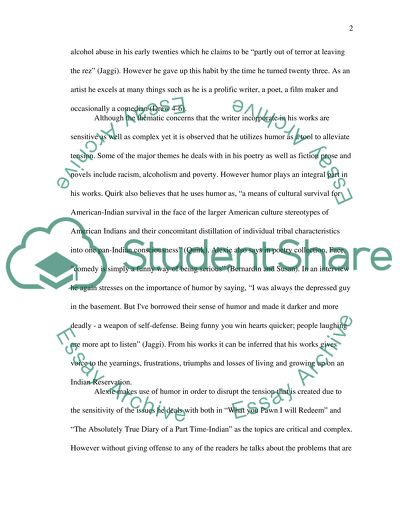Cite this document
(“Sherman Alexie's Life and Works Research Paper Example | Topics and Well Written Essays - 1750 words”, n.d.)
Retrieved from https://studentshare.org/literature/1448845-research-paper-based-on-short-story-i-read-by
Retrieved from https://studentshare.org/literature/1448845-research-paper-based-on-short-story-i-read-by
(Sherman Alexie'S Life and Works Research Paper Example | Topics and Well Written Essays - 1750 Words)
https://studentshare.org/literature/1448845-research-paper-based-on-short-story-i-read-by.
https://studentshare.org/literature/1448845-research-paper-based-on-short-story-i-read-by.
“Sherman Alexie'S Life and Works Research Paper Example | Topics and Well Written Essays - 1750 Words”, n.d. https://studentshare.org/literature/1448845-research-paper-based-on-short-story-i-read-by.


